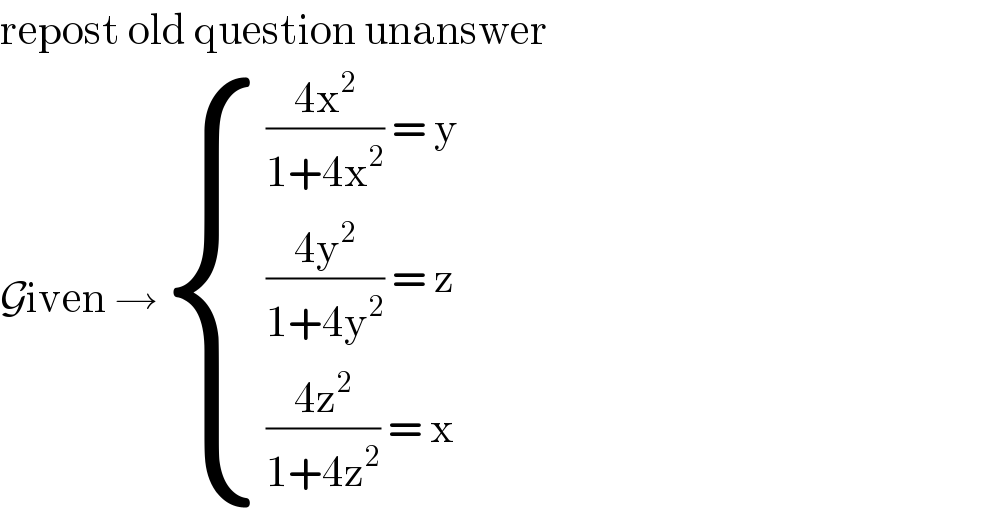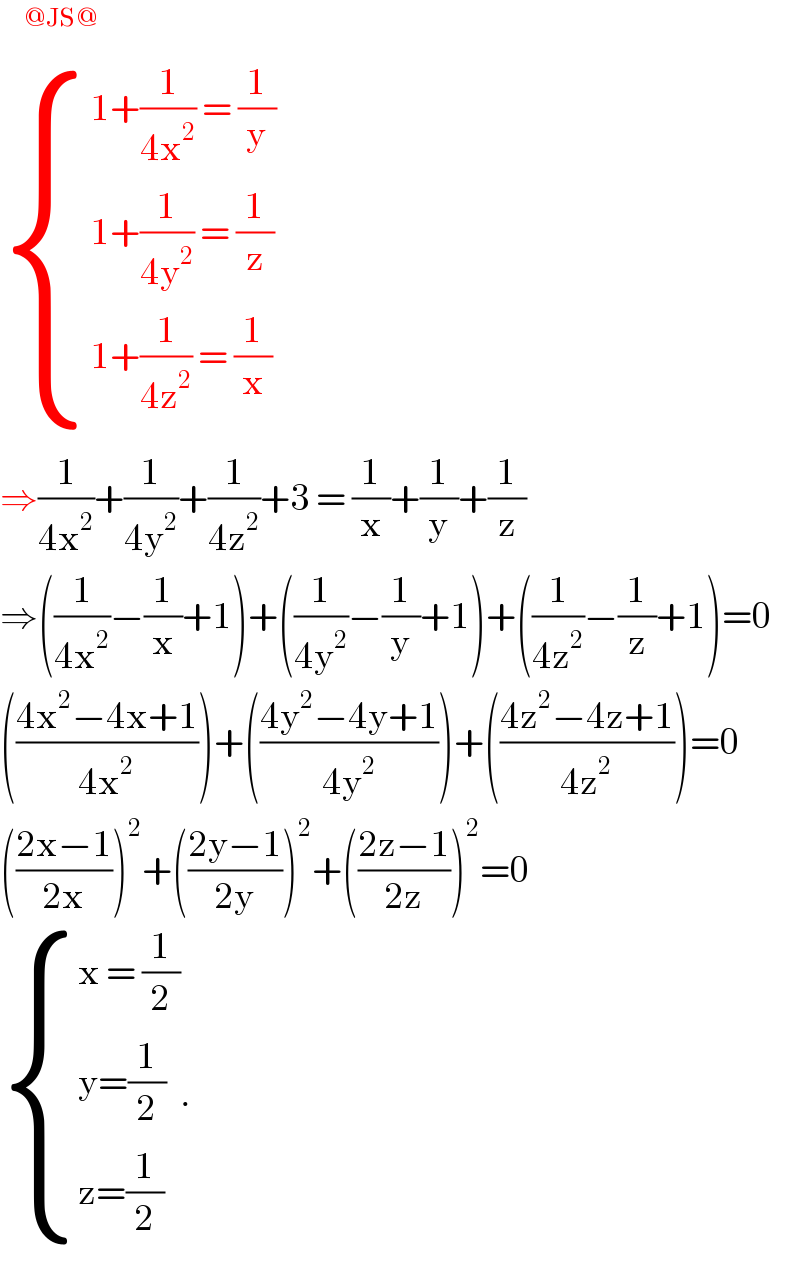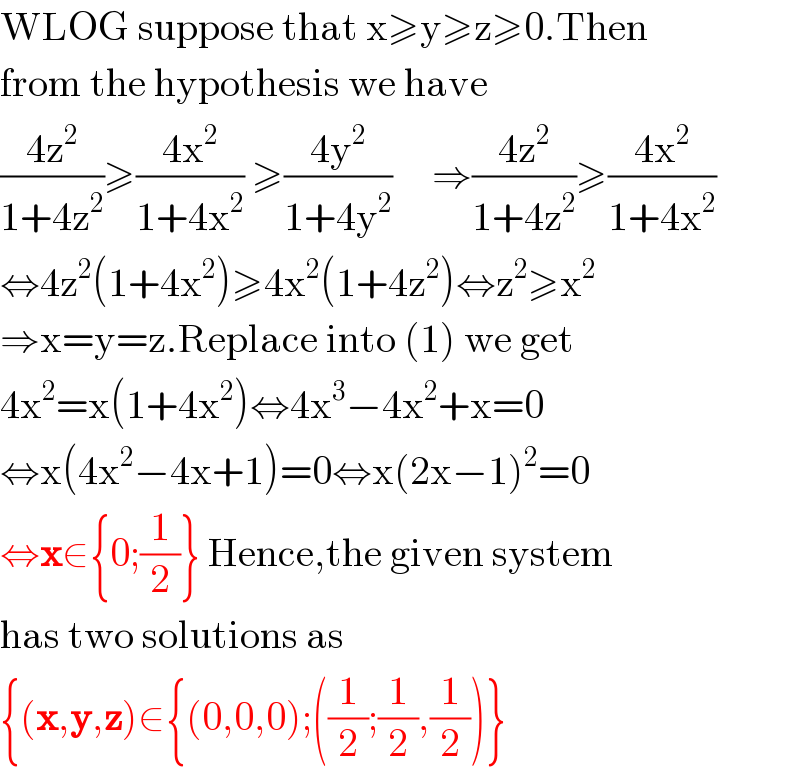
Question and Answers Forum
Question Number 106794 by bobhans last updated on 07/Aug/20

Answered by thearith last updated on 07/Aug/20

Answered by john santu last updated on 07/Aug/20

Commented by bemath last updated on 07/Aug/20

Commented by bobhans last updated on 07/Aug/20

Answered by 1549442205PVT last updated on 07/Aug/20

Commented by bemath last updated on 07/Aug/20

Commented by 1549442205PVT last updated on 07/Aug/20

